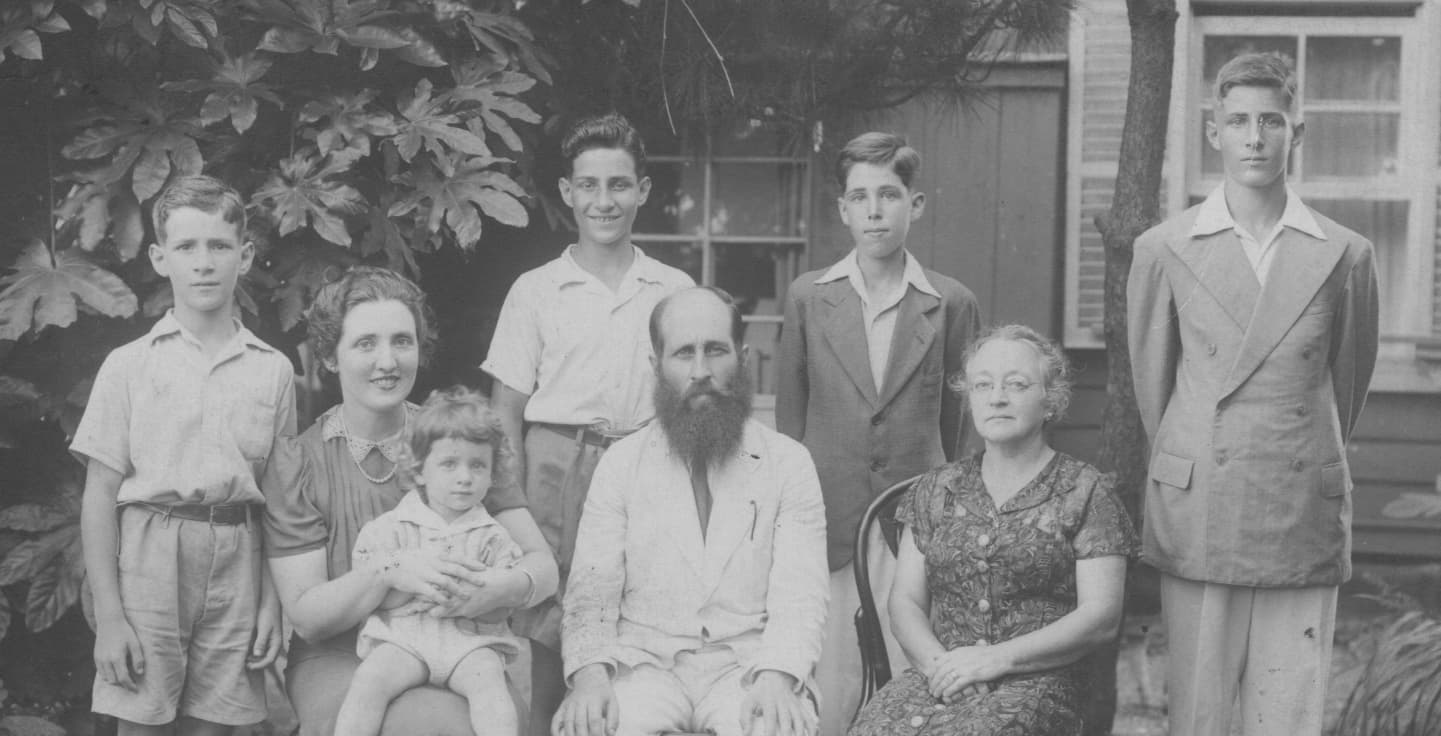Advertisement
One Man's Youth As A 'Stateless Foreigner' In Japan During World War II

Isaac Shapiro, 87, has reissued his memoir "Edokko: Growing Up a Stateless Foreigner in Wartime Japan." Edokko means child of Edo — Tokyo's former name.
He was the son of Russian Jewish musicians who fled persecution during the Bolshevik Revolution, then moved around the world as Adolf Hitler began his rise — from Germany to France and, in 1931, to Japan, where Shapiro was born. His mother made a side trip to China where she'd partly grown up. Then World War II loomed, which would play a key role in his life, as would music and his Jewish roots.
Here & Now's Robin Young speaks with Shapiro about his life and experiences during the war.
Interview Highlights
On his family leaving Germany for Japan amid Hitler's rise
"Well my first memories were really not of Japan, because my mother actually was born in Russia, in Odessa, but she was brought to China after the anti-Jewish pogroms in Odessa. When I was 6 months old, my parents separated and my mother took us four sons in 1931 and took us to China, where her father lived."
On experiencing the U.S. firebombing of Tokyo
"Well it was pretty frightening. I was all of 13 when fire raids came to Tokyo in the fall of '44. Then we left Tokyo after the big attack of March 10 and took refuge in a village 100 miles north of Tokyo, Karuizawa."
On which country he identified with as a child of Russian immigrants living in Tokyo
"That's a hard question to answer. I think I always fancied going to America eventually. English was our main language. I spoke to my brothers in English, the language we dreamed in, the language we talked to each other in. The Japanese did not treat us as their enemies, because we were stateless, and we felt reasonably comfortable, except for the food rationing and the bombing."
"It seems obvious to me now looking back that I was not risk averse."
Isaac Shapiro
On returning to Tokyo as a 14-year-old against his parents' wishes, and finding himself in Tokyo Bay aboard the USS Iowa
"It seems obvious to me now looking back that I was not risk averse, I didn't consider the risk, didn't think about it. I just did what I instinctively wanted to do. Very strong-willed, I guess. And then I started to meet the troops, and first the Army hired me, then as I was walking to the train station, this jeep with naval officers pulled up and took me down to their anchorage. They took me aboard and fed me, and I remember meeting Adm. [William] Halsey and Adm. [John] McCain, and then witnessing the surrender ceremony on Sept. 2 from the deck of the Iowa alongside of the USS Missouri, where [Gen. Douglas] MacArthur was officiating.
"And then I was introduced by a naval captain, Capt. Duckworth, to Marine Col. [John] Munn, who was taking over the air base, and Duckworth said to him, 'You get the air base, but you also get this 14-year-old kid.' And I had learned how to drive, Marines had taught me how to drive a jeep. So I became his interpreter and driver. I'm 14 years old, and he said to me, 'I'd like to bring you back to America.' So he sat down with my parents, and they agreed. And in July of 1946, this Vice Adm. [Arthur] Struble was sent to Japan, and he didn't know it, but he was sent there to pick me up and take me to Hawaii."
Advertisement
On surveying the aftermath of the atomic bombing of Hiroshima as an interpreter accompanying U.S. service members
"We walked around these horrible, destroyed streets. I'd never seen anything like it, and it was just devastating. No one said a word on the way back. It was just a riveting experience to see Hiroshima in October of 1945.
"It was quite different because of the devastation, and the realization that one bomb had done thousands of times more damage. It didn't occur to me then, but later on I thought if Japan had not surrendered, eventually all of the cities in Japan would have been pulverized. And then I started to hear these military songs, about how we're going to make a graveyard of Japan. That's what the Americans were singing to each other, the military, that they were going to bomb the hell out of Japan and make a graveyard out of it. Well, then I did realize that had the war continued we would all have been wiped out."
On how classical music remains a part of his life
"My musical experience was based on listening to my mother, and as a little boy I would sit and listen to her. I still think of her as, do you know who Clara Schumann was? I think of my mother as the Clara Schumann of the 20th century. Clara had I think six children, and my mother was a professional pianist who raised five sons, eventually. Her favorite music was romantic music — Chopin, Schubert, Schumann."
This segment aired on March 22, 2018.